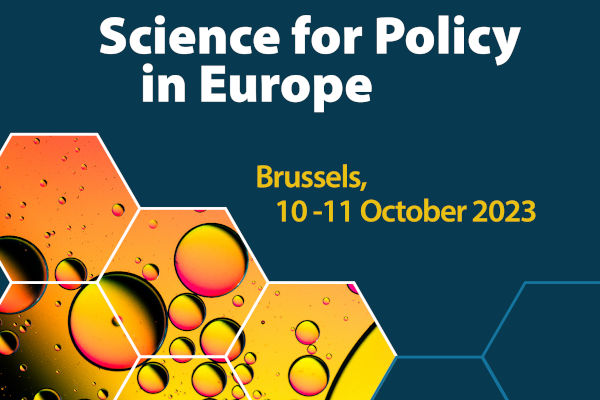This major public conference is designed to answer the following questions:
- What are the trends, challenges and opportunities for the future of evidence-informed policymaking?
- How can we build stronger science-for-policy institutions, networks and ecosystems in Europe?
- How can we develop the competencies and skills needed for effective science-for-policy mechanisms?
- How can we improve the governance of science for policy?
While there is broad agreement that policies should be informed by the best available scientific knowledge, the uptake of science into policymaking remains patchy and often ad hoc across different policy fields and member states.
- research policy
- Tuesday 10 October 2023, 09:15 - Wednesday 11 October 2023, 16:00 (CEST)
Practical information
- When
- Tuesday 10 October 2023, 09:15 - Wednesday 11 October 2023, 16:00 (CEST)
- Languages
- English
Description
Following the publication of the European Commission’s Staff Working Document on ‘Supporting and connecting policymaking in the Member States with scientific research’ in October 2022, the COMPET Council of December 2022 welcomed the discussion on the role of science in member states’ policymaking, acknowledging that the subject is important and timely in view of current and emerging challenges. The European Commission therefore has an important role to play in supporting EU member states to improve the uptake of science into policymaking.
Scope
Scientific knowledge and evidence are vital to inform policymaking, to help us identify and analyse problems, and to design effective interventions.
However, in the current poly-crisis landscape, facts are uncertain, values are in dispute, stakes are high, and decisions are urgent. So a simple statement of scientific evidence is not enough. Instead, we need a systemic approach that engages with complex, cross-cutting policy challenges — which means science advice systems must make use of interdisciplinary evidence and expertise, a good understanding of policy needs, and the ability to communicate across policy sectors.
Policy challenges arise across various time horizons, and different challenges require different responses. Modes of scientific advice that are useful in emergency situations — floods, volcanic ash clouds, public health emergencies or energy crises — are rarely the same as those required for long-term foresight and horizon-scanning.
In a world where governance and scientific expertise are both under close scrutiny, policies that are based on solid scientific advice — generated from the best available evidence, by well-functioning science-for-policy ecosystems — also offer something more: the prospect of rebuilding public confidence in science. This confidence will be vital if we are to respond effectively to the complex problems that our societies face, both today and in the future.

